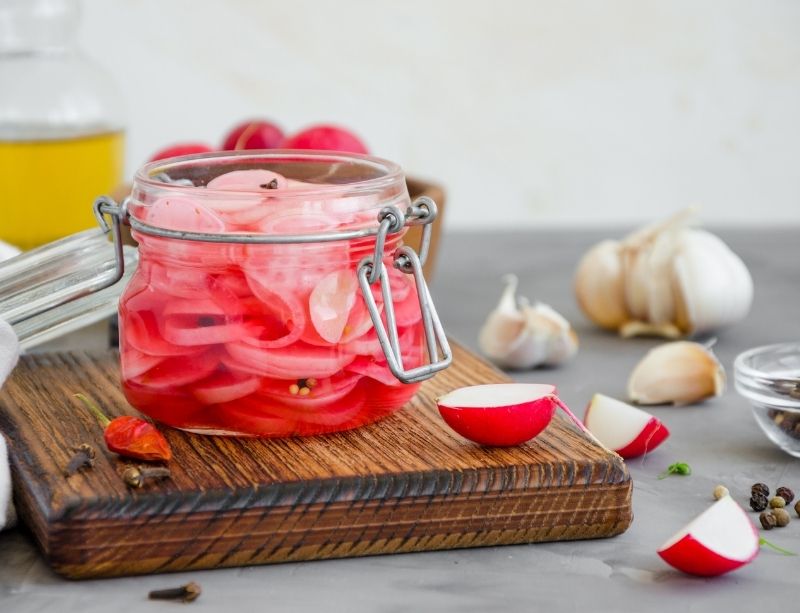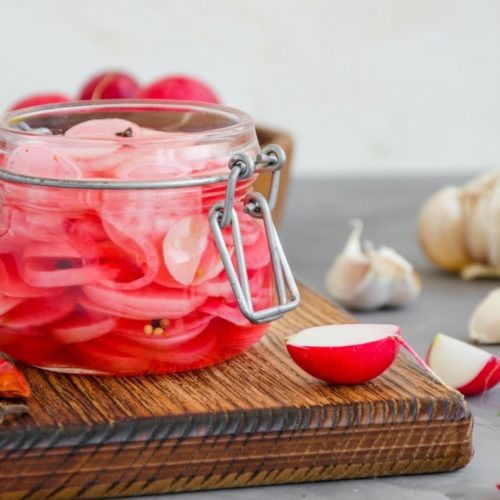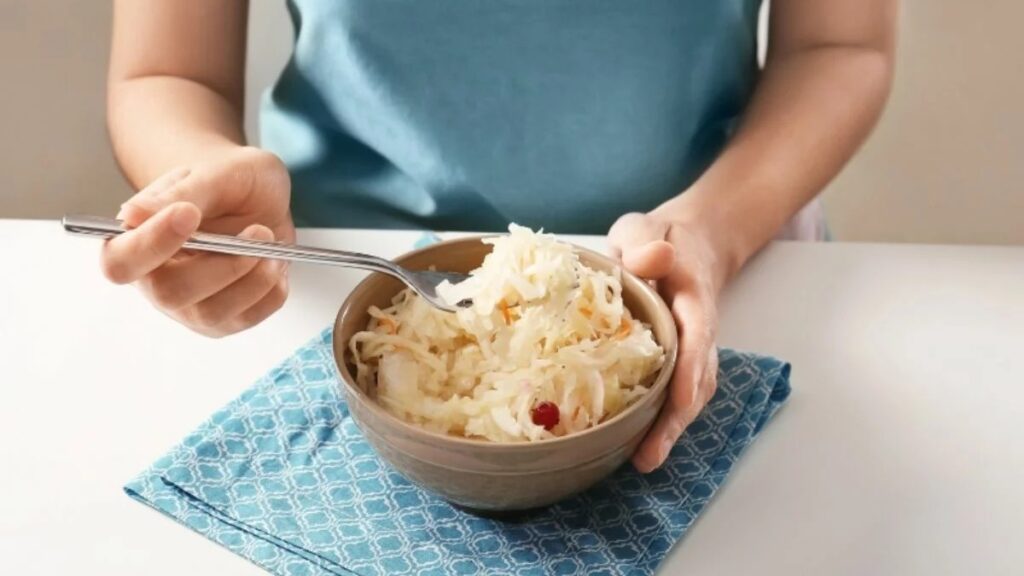Learn how to easily make fermented radishes!
Small favourite spring vegetables, radishes are true cocktails of vitamins, nutrients, and minerals. Radishes often arrive in large quantities on the shelves, and we quickly run out of ideas for cooking them.

Lacto-fermentation comes to the rescue to transform radishes into a crunchy, tangy, and… lively condiment! During fermentation, the radish gradually loses its spiciness, bringing out its flavour. A great way to rediscover this spring vegetable.
This lacto-fermented radishes recipe allows you to extend the harvesting season and is ideal for enjoying delicious radishes in any season!
You can use any kind of radish. Feel free to experiment with red, white, purple, or even watermelon radishes. Choose firm and still crunchy ones at the market, they will retain a better texture after fermentation.
Here we use a 2% salt brine, i.e. 10g of salt per 500ml. To learn more about this method, read our complete guide on salt and brine.

Fermented Radishes Recipe
Equipment
- Vegetable masher (optional)
Ingredients
- 2 bunches of radishes (about 400g)
- 10 g salt
- 5 ml mustard seeds (optional)
- Filtered or chlorine-free water
Steps
- Wash the radishes roughly and cut off the ends.
- Slice the radishes with a mandolin to obtain very thin strips. Watch your fingers! Radishes are red enough.
- Add the salt and mustard seeds to the jar. Add the radish slices on top, pressing them down with your hands or with a fermentation pestle.
- Add water so that the radishes are well covered. Squeeze with the pestle to remove the bubbles.
- Place a weight or ViscoDisc on top of the radish slices to prevent any contact of the vegetables with the air.
- Close the lid tightly. If you are using a lid with an airlock, fill the airlock with water up to the line.
- Let it ferment for 7 to 15 days at room temperature.
- When you are satisfied with the taste, put them in the fridge.
Notes
There you go, fermented radishes ready to be gobbled up! You can use them in salads, sandwiches, or to spice up a plate of raw vegetables that is a little too bland.

